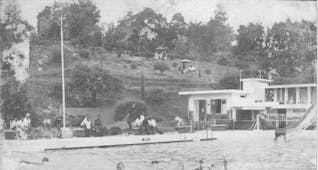I have seen the future of the Philippine economy in Indonesia. Listening to the inaugural address of President Benigno C. Aquino III last June 30, with the emphasis on good governance and justice for all, I was reminded of what I have been witnessing in Indonesia in the frequent trips I have made to this only Southeast Asian member of G-20. Thanks to the political will of President Susilo Bambang Yudhoyono (SBY) to fight corruption over the last six years, Indonesia is now considered by bankers and investors from all over the world in the same class as China and India as a most attractive emerging market that will lead the global economy in growth over the next decade or so. In fact, in my most recent trip during the third week of June, Indonesia's credit rating outlook was raised to positive by Moody's Investors Service. The outlook on Indonesia's Ba2 local- and foreign-currency sovereign ratings was raised from stable, three months after Standard & Poor's upgraded the country's credit rating to a 12-year high. Moody's last upgraded Indonesia's debt, to two levels below investment grade, in September 2009. The rupiah has risen 15 percent against the US dollar in the past year. It is the biggest gainer in Asia, as investors poured money into an economy that expanded while the G-8 countries went into a recession. Indonesia is the least export-dependent among the East Asian economies. The re-election of President SBY to a second term in 2009 boosted confidence. Moody's said it expected Indonesia to post "sustained strong growth" and further improvement in the government's financial and debt position. In 2009, Indonesia attracted $10 billion in Foreign Direct Investments (in contrast with the measly $1.8 billion that we attracted). The debt to GDP ratio plunged from 56% in 2004 to 28% in February 2010. Offshore buyers of government securities accounted for 23% of the total, a significant improvement from the 3% in 2004. Interest rates dropped from 12.75% in 2006 to 6.5% in April 2010. Fiscal deficit is only 1.6% of GDP compared to about 4% in the Philippines. Inflation in 2010 is expected to be 3.4%, a far cry from the double-digit inflation at the start of the first term of President SBY. In addition to enlightened economic policy of respecting market forces and implementing government measures to directly address the poverty problem, the single-minded fight against corruption can explain the much-improved investment climate in Indonesia, which used to be considered by Transparency International as one of the most corrupt countries in the world during the 1990s. During his first term, President SBY relied on two outstanding technocrats--Vice President Boediono and Finance Minister Sri Mulyani--to go after tax evaders, dishonest politicians and corrupt business people. The Government, under the leadership of the President and these two trusted allies, was able to send to jail a good number of high officials for corrupt practices, including the father of the daughter-in-law of the President. Indonesia has been a perfect example of the relation between corruption and poverty. By going after tax evaders and corrupt government officials, President SBY was able to unleash billions of rupiahs that could be channeled to poverty eradication. This is the sense in which "kung walang corrupt, walang mahirap" is true. I am sure that in a very productive state visit that President Aquino can make to Indonesia as soon as possible, President SBY will be more than willing to share his experiences in ridding both the public and private sectors of dishonest individuals. To make the correlation between fighting corruption and reducing the poverty level more direct, the highest priority in going after corrupt officials should be to target tax evaders and smugglers. This is where the Department of Finance and its Bureau of Internal Revenue and Bureau of Customs should play the leading role, as was the case in Indonesia. Sending some of these tax evaders to jail will definitely sow fear into the hearts of the most notorious culprits in such high-profile sectors as automotive, cigarette, liquor, and the medical profession. Also priority should be assigned to departments that have been singled out in studies conducted by the World Bank and ADB, among others, on corruption in the public sector, i.e., Department of Public Works and High Ways, Department of Education and Department of Agriculture. One can be optimistic about success in these endeavors because the ones appointed to head these departments are of unquestionable integrity and competence. For the Philippines to experience a substantial increase in foreign investors, the Indonesian policy reforms should also be closely studied. As examples, in health care, foreign investors are now allowed in Indonesia to hold up to 67 percent in hospitals across the country. Foreigners are also allowed to have a maximum ownership of 49 percent in staple food plantations, such as rice, as well as cargo services and film businesses. President Aquino may want to create a special commission to study the removal of the many restrictions against foreign investments still enshrined in the Philippine Constitution. Foreigners should be able to own residential and commercial land, educational institutions, mass media and telecom enterprises. Indeed, Indonesia is showing us the way to implement in very concrete terms the laudable promises made by President Aquino in his inaugural address. By BERNARDO M. VILLEGAS[Source]
Cek berita, artikel, dan konten yang lain di Google News














